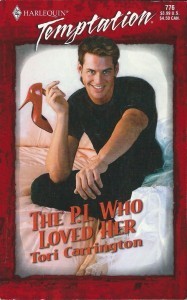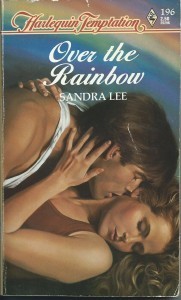The Harlequin Learning Curve
Recently I rescued a box of Harlequins from work. They were lying around the office and someone asked if anyone wanted them because they were headed for the recycling bin. Of course, I jumped up and down saying, “Me, me!” My antics garnered a number of looks and a minor discussion about the terrible quality of Harlequin Romances. I’m new so I didn’t jump in to defend the books, I’ll let my book nerd colours shine later.
But this got me thinking. I brought the books home and my mom went gaga over them with me. I made a few, mostly positive, comments of my own about them, we laughed, and a blog post was born.
What is it about Harlequin’s that I love?
The awful titles make me laugh
The character names are usually dreadful, and must be spoken in a breathless whisper
The writing is usually sparse and I can read them in one go
The plots are formulaic and therefore easy to guess at, which makes me feel really smart for all of 5 minutes
The metaphors, especially during torrid scenes, sometimes make my eyes bug out in disbelief
The covers are fantastic
They’re just plain fun
And 1 time out of 10 there’s a genuinely good book to be found, and a writer on the way to greatness
Please don’t get me wrong, I am not disparaging Harlequin Romances. I love them enough that I can see their true colours and they are not without their faults –what is?– and I adore their entertainment value. I also think they provide an incredible learning opportunity. No, I’m not saying they’re the ideal means for learning how to not write. Rather, I think they underscore some of the most important things to keep in mind if you want to be a good writer.
Titles and covers are sometimes your books very first impression on a reader. You might not be able to control the cover design but you sure as heck have full control over what your book is named. My prime example from my box of goodies: Code Name Casanova. I laughed so hard I snorted between giggles when I read this title to my mom. Do I have high expectations for this story? Not really, the name is too goofy. Do I expect there to be a playboy character type who’s going to get his comeuppance? There better be. Is there going to be a spy element? “Code Name” is kind of a giveaway, and the author better deliver.
Character names are also really important in regards to your reader because they say a lot about you as a writer. A conscientious writer finds ideal names for their characters because it’s like naming their children. And when a name really suits, it shows. A big trend in romance is to recycle names, usually because writers are expected to be really prolific, but it can smack of laziness. As a reader I can’t help but wonder why I should invest in these people when the writer didn’t? My best example from the box: Saffron Shaw. And her eventual lover Fraser Ross. The book is called Wildcat Wife, because I know you want to know. It’s part of The Australians series. I’ll stop now. But please, think about your character names because they’re not only a reflection on you as a craftsmen but they influence your reader more than you think.
Formulaic writing has its place and uses. There are always genre trends and rules as well as reader expectations to consider but think outside the box. One of my writing rules is: “Subvert, never divert, reader expectations.” Basically, work within boundaries and throw as many curve balls as you can. Don’t mislead your reader, surprise them. And most importantly –be original! You wrote your story because it’s something you wanted to read and no one had written it yet. Don’t revamp what’s already been told exactly how it was told. Would you read something like that?
Writing is an art and metaphors are beautiful. If you’re not a poetic writer don’t force it. It hurts to read as much as it hurts to write. Seriously. Write how you write because you have a voice and style of your own and that’s what readers want to read. Here are examples to scare you away from this practice: http://www.tressugar.com/Bad-Sex-Tweets-2013-32410091.
I leave you with these covers to contemplate:
Anxiety Ink
- Kate Larking's profile
- 53 followers





